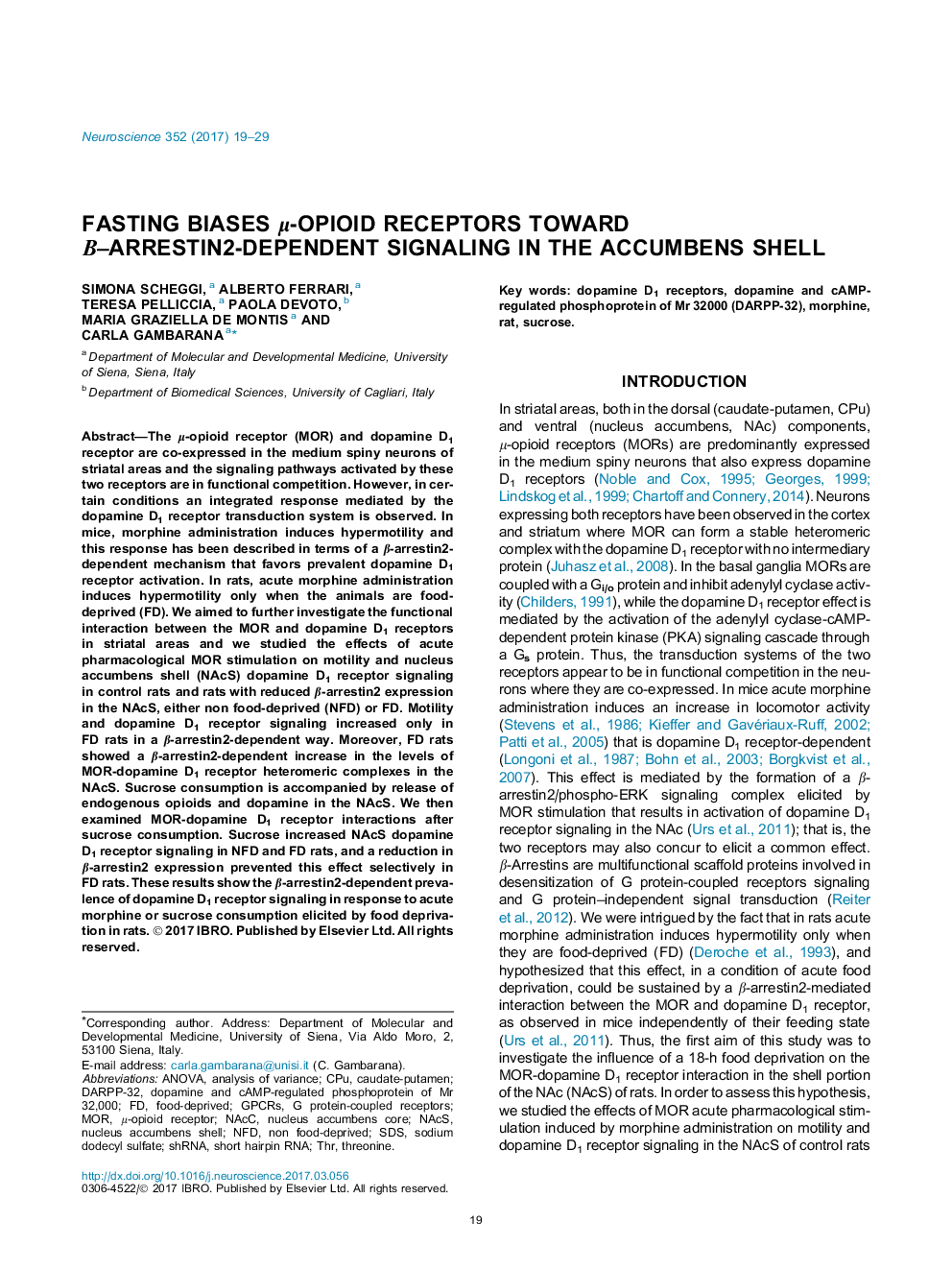| Article ID | Journal | Published Year | Pages | File Type |
|---|---|---|---|---|
| 5737458 | Neuroscience | 2017 | 11 Pages |
â¢Acute morphine administration increases motility only in food-deprived rats and this is a β-arrestin2-dependent effect.â¢Acute morphine increases NAcS Thr34 DARPP-32 phosphorylation only in food-deprived rats in a β-arrestin2-dependent manner.â¢Food-deprived rats show a β-arrestin2-dependent increase in μ-opioid-dopamine D1 receptor complex levels in the NAcS.â¢Sucrose consumption elicits an increase in NAcS phospho-Thr34 DARPP-32 levels in non food-deprived and food-deprived rats.â¢The sucrose-elicited increase in phospho-Thr34 DARPP-32 levels is β-arrestin2-dependent only in food-deprived rats.
The μ-opioid receptor (MOR) and dopamine D1 receptor are co-expressed in the medium spiny neurons of striatal areas and the signaling pathways activated by these two receptors are in functional competition. However, in certain conditions an integrated response mediated by the dopamine D1 receptor transduction system is observed. In mice, morphine administration induces hypermotility and this response has been described in terms of a β-arrestin2-dependent mechanism that favors prevalent dopamine D1 receptor activation. In rats, acute morphine administration induces hypermotility only when the animals are food-deprived (FD). We aimed to further investigate the functional interaction between the MOR and dopamine D1 receptors in striatal areas and we studied the effects of acute pharmacological MOR stimulation on motility and nucleus accumbens shell (NAcS) dopamine D1 receptor signaling in control rats and rats with reduced β-arrestin2 expression in the NAcS, either non food-deprived (NFD) or FD. Motility and dopamine D1 receptor signaling increased only in FD rats in a β-arrestin2-dependent way. Moreover, FD rats showed a β-arrestin2-dependent increase in the levels of MOR-dopamine D1 receptor heteromeric complexes in the NAcS. Sucrose consumption is accompanied by release of endogenous opioids and dopamine in the NAcS. We then examined MOR-dopamine D1 receptor interactions after sucrose consumption. Sucrose increased NAcS dopamine D1 receptor signaling in NFD and FD rats, and a reduction in β-arrestin2 expression prevented this effect selectively in FD rats. These results show the β-arrestin2-dependent prevalence of dopamine D1 receptor signaling in response to acute morphine or sucrose consumption elicited by food deprivation in rats.
